PUTIAN, China — Chen Deliang, wearing an orange tunic, a gold watch and fluffy bedroom slippers decorated with snowflakes and the word “Love,” stood proudly in the 130,000-square-foot temple he had built. He had filled it with pagodas, Buddhas and a towering statue of a local goddess. There were several wings, with bedrooms and an office where he practiced calligraphy.
A chain smoker with a wispy beard, he initially hesitated talking about his path to unimagined wealth, but eventually relented with a matter-of-factness that betrayed no sense of smugness: “I was the first person to create everything.”
Nearby his family and friends owned mansions, many several stories tall, rising above the unpaved roads and sweet potato fields of the village of Dongzhuang in southern China. They exuded a gaudy opulence — elevators, minarets, gilded gates, fountains with Greek gods. Just days before the Lunar New Year, the most important festival in China, Ferraris and Lamborghinis lined their driveways.
Even in a country where multimillionaires are minted daily, Mr. Chen and his brethren are unlikely testaments to the Chinese dream. A middle school dropout turned martial arts performer turned itinerant salesman, Mr. Chen parlayed a remedy to treat scabies into a chain of clinics for sexually transmitted diseases and then into the country’s largest network of private hospitals. Along the way, his relatives and neighbors in Dongzhuang and the surrounding area of Putian got into the same business and also made lots of money.
“All of us were from Dongzhuang, and one by one, we started engaging in medicine,” Mr. Chen said. “It was your relatives, his relatives — all of us were relatives.”
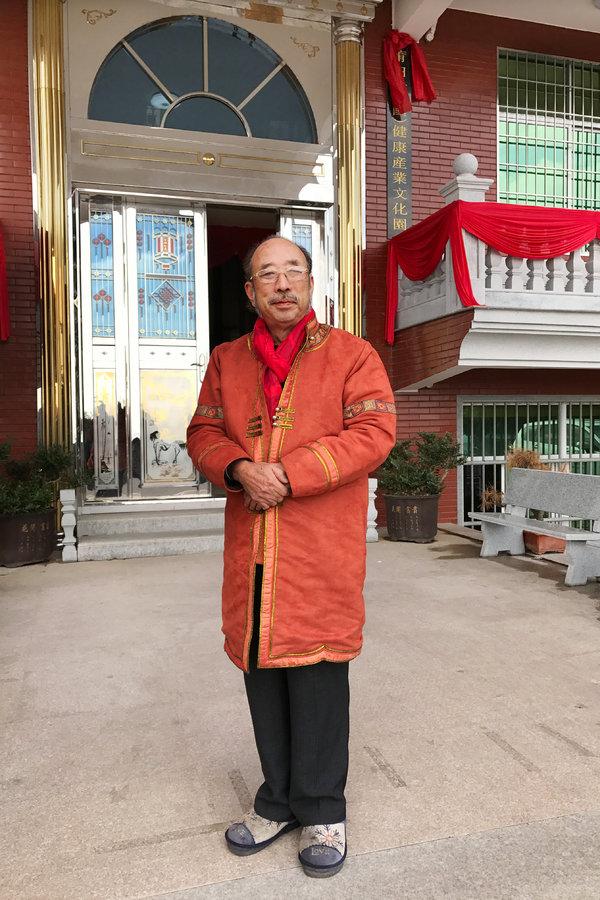
Chen Deliang founded the network decades ago after making money selling his own remedy for scabies. Today, eight in 10 private hospitals in China are affiliated with the Putian system.CreditSui-Lee Wee
The Putian system, a loosely affiliated network that traces back to Mr. Chen’s initial forays into medicine, accounts for eight of every 10 private hospitals in the country, some 8,000 facilities. Although they don’t all have the same owners, all were started by people with connections to the area of Putian and are members of the same trade group.
They offered a vision of the future of medicine, promising everything the old state hospitals lacked, like well-trained specialists, quick appointments at the click of a mouse and state-of-the-art equipment. Public officials praised the hospitals, while big Wall Street firms invested billions of dollars in them.
Then came the scandal. A university student died after a doctor at a Putian-linked hospital tried to treat his cancer with a discredited form of immunotherapy. The case prompted nationwide outrage and protests. Shares of Putian-linked hospitals plummeted. The government announced an investigation into Putian ads.
For the Chinese leadership, the death has exposed weaknesses in the country’s health care system. While public hospitals are subject to tighter scrutiny at the national level, private hospitals like those in the Putian network are largely overseen by local governments, many of which don’t have the resources and expertise to police the medical profession.
Some hospitals in the Putian group fabricated patients’ testimonies and doctors’ credentials. Others listed false certifications or used outdated treatments. The Global Times, a nationalist tabloid owned by the official newspaper of the ruling Communist Party, called them “harmful hospitals.”
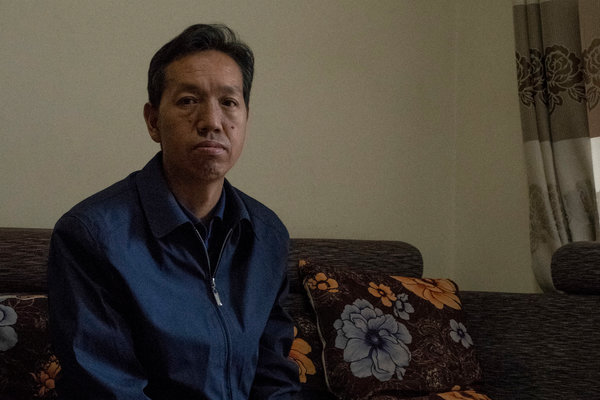
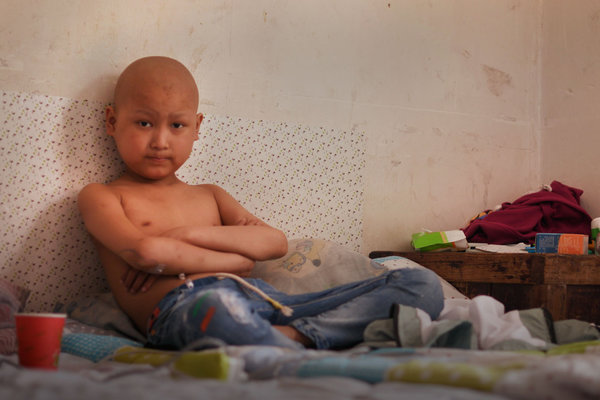
Wu Xidong, executive president of the Putian health industry association, which oversees the group of private hospitals, defended its practices and operations. The public anger at Putian hospitals reflected dissatisfaction with poor regulation and the entire health care system, he said.
“The patients still give us recognition, isn’t that correct?” Mr. Wu said. “This proves that we have no problems. The state has also not taken any measures against us, right? Because our hospitals themselves are very good.”
Mr. Chen, 67, lives a quiet life in Dongzhuang after retiring in the 1990s from the health care empire he created. He drives his golf buggy around the temple complex, which has a statue devoted to Chen Jinggu, a woman who is revered in the area as the goddess of the land. None of the pilgrims seemed to recognize him.
Like other Putian tycoons, Mr. Chen has been keeping a low profile. He doesn’t want to talk about the scandal but rails against the “misinformation” out there.
“The reports were nonsense. They were a mess,” Mr. Chen said. “Now, when people go and see a doctor, they’ll ask: ‘Is this a private hospital? Should we go in?’ There’s a question mark. Will they be deceived? It’s making things difficult for us.”
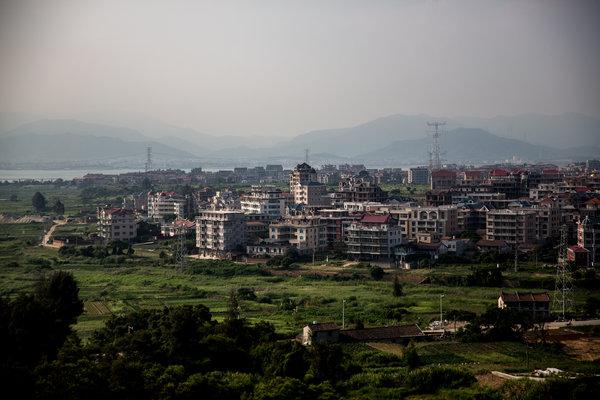
“All of us were from Dongzhuang, and one by one, we started engaging in medicine,” Mr. Chen said. “It was your relatives, his relatives — all of us were relatives.”CreditBryan Denton for The New York Times
From Scabies to S.T.D.s
During the turmoil of the Cultural Revolution, doctors were scarce and medicine was limited. Scabies, an itchy, highly infectious disease caused by mites, afflicted many Chinese. “It spread like wildfire,” Mr. Chen said.
Mr. Chen saw an opportunity, coming up with a homemade remedy — a combination of nitric acid, mercury and vinegar. Traveling throughout China, he sold it for 30 cents a bottle, 10 times the cost. Mr. Chen made about $2,200 a year, at a time when public servants earned about $5 a month.
“The country’s medical system was so backward,” Mr. Chen said. He attracted a core group of disciples, training them in his practice. “None of us had any medical background.”
For decades, the Communist Party provided the basics. In the countryside, legions of so-called barefoot doctors, medical professionals with limited training, treated farmers, with the government picking up most of the costs. In cities, most Chinese workers received coverage through their employers, state-owned companies.
When China’s paramount leader, Deng Xiaoping, started to open the economy in the late 1970s and introduce market reforms, he took away government subsidies for health care. “Barefoot doctors” lost their source of income, and hospitals were left to fend for themselves.
Mr. Chen and his apprentices started renting rooms in small hotels across from bus stations, where there was a lot of foot traffic. They posted ads on utility poles to target more customers.
In the decades that followed, Mr. Chen and his partners branched out, starting clinics to treat sexually transmitted diseases. Prostitution was on the rise, and people were embarrassed about going to public hospitals to be treated. The clinics allowed patients to register anonymously.
“S.T.D.s are embarrassing. You don’t want anyone else to know,” Mr. Chen said. “You could write down any name — we wouldn’t care.”
He and others in the Putian network soon developed a signature style, expanding widely with clinics in nonemergency fields like infertility, dermatology and cosmetic surgery. After clinics, they opened entire hospitals.
Mr. Chen bowed out of the business in the 1990s, after a car accident. The network continued to flourish.
The group got a major boost from the government in 2003, when China granted private hospitals tax-free status for three years. Severe acute respiratory syndrome had swept the country, forcing the authorities to scramble to get more hospital beds and build more quarantine facilities. And officials realized the public hospitals were insufficient to care for the rapidly swelling population.
A decade later, the government, at a meeting of the top party leadership, said it would further encourage the development of private hospitals. Chen Zhili, former vice chairwoman of the National People’s Congress, wrote a letter to the Putian network in 2014, thanking it for “making positive contributions to the development of private medical care in China.”
The government backing attracted interest from Wall Street. American financial firms like Sequoia Capital and Morgan Stanley have invested billions of dollars in health care companies in the Putian network. Several of the companies listed their shares on the stock exchanges of Shanghai and Hong Kong.
Steven Wang, founder of HighLight Capital, a private equity fund in Shanghai, said he had first heard about the Putian network from his parents, both doctors in public hospitals. When Mr. Wang visited the city of Putian in 2001, he found a place still mired in poverty, but he was impressed by the spirit of the locals.
Centuries earlier, the city had been invaded by Japanese pirates. A massacre followed, and people fled to the mountains. They were a people, Mr. Wang said, who could “eat bitterness,” referring to an expression used by Chinese to describe the ability to endure hardship.
Mr. Wang invested $150 million in the Putian-linked Angel Group (China) Holding Company, which runs a maternity hospital in the southwestern city of Chengdu. He said the second generation of entrepreneurs from Putian, who followed Mr. Chen and the initial founders, were mostly university educated. So their “knowledge, insights and vision” are different from those of their forebears, Mr. Wang said.
“They are full of vitality, are keen to learn, are open-minded and want to improve,” he said.
Patina of Legitimacy
Xing Jiaming was excited in 2015 to start his internship at a marketing firm for Putian hospitals in the cities of Nanjing and Jinan. As an economics student, he thought it would be useful to gain some other experience, especially at a fast-growing business. Over the previous decade, more than 9,000 private hospitals had opened in China, most connected to the Putian group.
During his first week at work, he got a plum assignment. A doctor had recently left one of the hospitals, and Mr. Xing was assigned to write up the credentials of the doctor’s replacement. The résumé of the replacement was identical to his predecessor’s. When the intern asked about the similarities, his boss told him to finish.
For the Nanjing Brain Hospital, Mr. Xing said, he was told to promote its treatment success rate as 100 percent. He also made up testimonials, including one of a woman in Nanjing who was cured of anxiety after going to a Putian-related hospital.
“Everything was fabricated by us,” he said. “None of them was a real case.”
Mr. Xing said he and his colleagues had been given templates. “We had to exaggerate the harm caused by the disease,” he said. “The more exaggerated, the better.” The company, he said, had a “professional art team” that would steal online photographs of other people and stick them onto testimonials.
Mr. Xing resigned after two weeks.
“This phenomenon doesn’t only pertain to the Putian network, right?” Mr. Wu of the Putian health association said. “All over the internet, it’s likely that there are many other businesses who engage in that.”
Putian tapped the power of the internet to expand, plowing profits into marketing. Liang Jianyong, a former Communist Party secretary in Putian, said the network invested $1.8 billion in advertising on the Chinese search giant Baidu in 2013. It amounted to nearly half the search engine’s advertising revenue that year, according to the National Business Daily. Baidu declined to comment.
Many of the online marketing materials have a similar feel. They feature dozens of specialists, with lengthy résumés promoting “abundant clinical experience” and “praise from peers within the industry.” There are glowing testimonials from satisfied patients with emotional narratives.
One details the case of a father who “knelt down” pleading with the chief doctor at the Putian-linked Edward Hospital, in the far western region of Xinjiang, to treat his 5-year-old daughter. She received treatment that was “the most advanced technology in the world.”
Some Putian hospitals promoted credentials they didn’t have. Two of the nine doctors advertised on Shenyang Metropolis Hospital’s website are not accredited to work there, according to an analysis of a doctor database run by the National Health and Family Planning Commission, the government agency.
Others tried to make it seem they were affiliated with some of the country’s top hospitals.
Weining He Mu Jia, one of the 8,000 hospitals in the Putian network, had the patina of legitimacy. He Mu Jia was the Chinese name of Beijing United Family Hospital, China’s first foreign-owned hospital and one of its most respected.
President Barack Obama and Gary F. Locke, a former United States ambassador to China, graced the covers of Weining He Mu Jia’s magazines. A photo of Roberta Lipson, the founder of Beijing United Family Hospital, hung in the Weining hospital’s lobby. The photo, which was doctored, featured Ms. Lipson at the grand opening of the emergency room expansion of the “Weining United Family Hospital and Clinics.”
The connections were purely show. Despite no relation, more than 20 hospitals in the Putian network have used the Chinese name He Mu Jia or similar variations, according to Ms. Lipson. Her company, Chindex International, has sued six Putian hospitals for trademark infringement, including Weining He Mu Jia.
“Every single day in the news, there are people on the internet complaining about them, complaining about malpractice, and it’s our name,” Ms. Lipson said.
Beijing United won the trademark infringement lawsuit against the Weining hospital in 2014. But Weining still runs an account on Weibo, China’s version of Twitter, with the He Mu Jia name.
A Scandal Erupts
Wei Zexi, a 22-year-old university student, was lured by the promises of a Putian hospital.
With a diagnosis of synovial sarcoma, a rare form of cancer that attacks the tissue in the muscle joints, Mr. Wei had undergone three operations, four chemotherapy sessions and 25 radiation therapy sessions and had taken traditional Chinese medicines hundreds of times. With the help of donations, he bought Keytruda, an immunotherapy drug that is not available in most parts of the mainland, for $5,000 in Hong Kong.
When none of it worked, Mr. Wei desperately looked online for options. A Putian center at a military hospital in Beijing, appearing at the top of his search results on Baidu, offered what seemed like a miracle: an immunotherapy program called DC-CIK.
“As long as you have 1 percent of hope, it is worth using your life to take a gamble,” he wrote in a May 2015 reply to a post on Zhihu, a Chinese knowledge-sharing website.
A doctor, a specialist for the Putian treatment center, Shanghai Kangxin hospital management company, told him that the DC-CIK treatment had a success rate of 80 to 90 percent and could extend his life by 20 years. He touted a partnership with Stanford University.
His parents borrowed money from relatives and friends for the four treatments, which cost $30,000. Within a few months, the cancer had spread to his kidneys. In April 2016, 19 months after he first sought treatment in the Putian-linked hospital, Mr. Wei was dead.
The DC-CIK treatment had been phased out in the United States because it was largely ineffective. There was no partnership with Stanford.
Mr. Wei, according his best friend, Wang Xi, believed the treatment was legitimate because of Baidu’s search results. The influential state broadcaster China Central Television had also once interviewed the doctor who treated Mr. Wei.
“He felt he was already cautious enough,” his friend said.
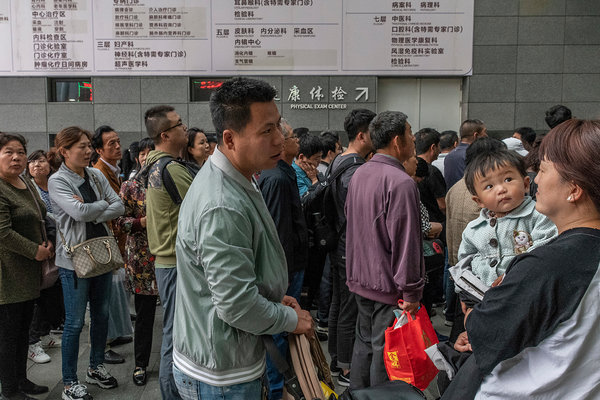
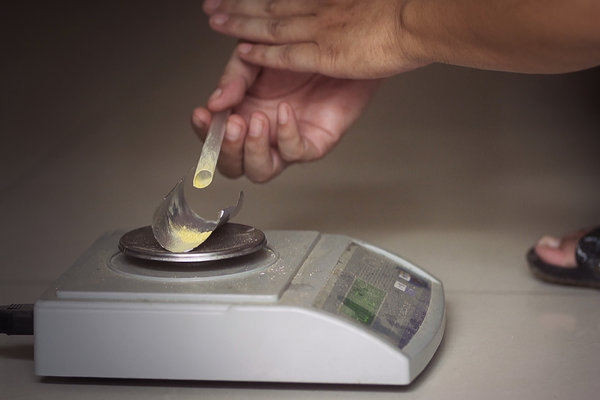
A nationwide scandal erupted after his death. The Putian network became the emblem of unfettered corruption within the private health care system. Local authorities took particular aim at one of its more egregious violations, operating clinics within other hospitals. The practice had been outlawed years earlier, but many players in the Putian network continued to develop them.
In 2017, a court in Anhui Province said a hospital had violated local regulations by renting out several specialist departments in andrology and dermatology, among others, to a man from Putian, who was eventually forced to shut down. That same year, the local governments in the provinces of Liaoning and Henan announced crackdowns on the practice.
“China’s health care fraud is pretty rampant,” said Dr. Ma Jun, director of the Harbin Institute of Hematology and Oncology, a public hospital in China’s northeast. “With China’s private hospitals, there are a lot of traps.”
In October 2016, Chen Zhanghao paid $580 for nasal surgery in the eastern city of Ningbo at what he believed was a subsidiary of Tongren Hospital, a prestigious hospital in Beijing. He had found the Putian-affiliated hospital on Baidu.
According to Mr. Chen, the hospital at the time purported on its website to be a Tier 3 institution, the government’s top classification. Later, Mr. Chen learned, through a freedom of information request, that the hospital did not have the designation and was not allowed to conduct that type of surgery, according to a copy of the government’s response to his request, which was viewed by The Times. (The hospital has since removed the classification.)
Mr. Chen, 25, now has difficulty breathing sometimes because his nose either hurts or is congested, he said. He tried looking for the doctors who had treated him, but they have left the hospital, now known as the Ningbo Yinzhou Tongren Hospital.
Mr. Chen has nightmares thinking about his surgery. “I just don’t want to think about it anymore,” he said.
In March 2017, he joined five other patients with similar problems, protesting outside the offices of Baidu for compensation. They held banners that read: “We are the living Wei Zexis.”
Back at his temple, Chen Deliang defended the health care empire that he founded all those decades ago.
Mr. Chen said the hospital department that Mr. Wei had visited in Beijing had nothing to do with Putian but was owned by a company from Zhejiang Province. He did not elaborate, and corporate records showed otherwise.
When asked about the fake ads, Mr. Chen defended them, saying all ads need to have an element of “boastfulness,” but added that “it’s impossible that they are fake.”
He said many Putian hospitals had lost money, struggling to get loans and pay their workers. But when asked how many exactly, he said he could not tell for sure.
“We are not selling fake drugs, nor are we deceiving people,” Mr. Chen said. “The government has done nothing to us.”
Research was contributed by Zhang Tiantian, Amy Cheng, Tang Yucheng, Elsie Chen and Ryan McMorrow.

